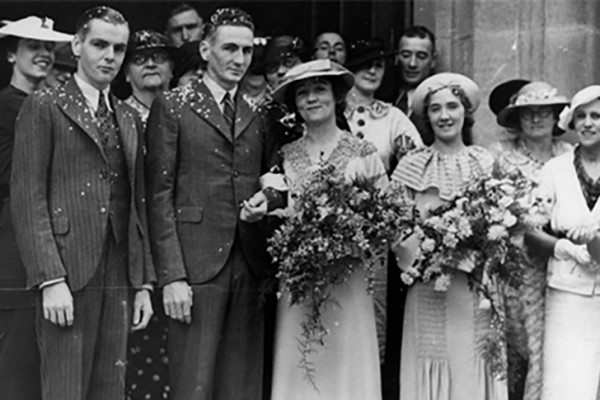WashU Expert: Five holiday talking points for families facing aging, end-of-life decisions
Few things are as certain as the end of life, so why is it so hard to talk about? That’s a question that many families will be grappling with over the holidays. And while it’s easy to put off dark discussions during festive times, it’s best to have them sooner than later, says Brian Carpenter, a psychologist who studies family relations in later life at Washington University in St. Louis.
Newly discovered brain network recognizes what’s new, what’s familiar
New research from Washington University in St. Louis has identified a novel learning and memory brain network that processes incoming information based on whether it’s something we’ve experienced previously or is deemed to be altogether new and unknown, helping us recognize, for instance, whether the face before us is that of a familiar friend or a complete stranger.
Carrot or stick? Punishments may guide behavior more effectively than rewards
When it comes to rewards and punishments, which is more effective — the carrot or the stick? Researchers at Washington University in St. Louis have devised a simple experiment to test the effects of rewards and punishments on behavior and have found that punishments seem to be more effective at influencing behavior.
Building a memory palace: World’s top memory athletes to compete May 2-3
Recalling long lists of random words, numbers and playing cards will be the challenge this weekend as two dozen of the world’s top memory athletes square off in San Diego for the 2015 Extreme Memory Tournament, an annual competition sponsored by Washington University in St. Louis and Dart NeuroScience.
‘Flicker: Your Brain on Movies’
Why do so many of us cry at the movies? Why do we flinch when Rocky Balboa takes a punch? What’s really happening in our brains as we immerse ourselves in the lives being acted out on screen? These are the questions that Washington University in St. Louis neuroscientist Jeffrey M. Zacks, PhD, explores in his new book, “Flicker: Your Brain on Movies.”
Friends know how long you’ll live, study finds
Young lovers walking down the aisle may dream of long and healthy lives together, but close friends in the wedding party may have a better sense of whether those wishes will come true, suggests new research on personality and longevity from Washington University in St. Louis.
Most American presidents destined to fade from nation’s memory, study suggests
American presidents spend their time in office trying
to carve out a prominent place in the nation’s collective memory, but
most are destined to be forgotten within 50-to-100 years of their
serving as president, suggests a study on presidential name recall
released Nov. 27 by the journal Science.
Hope for those with social anxiety disorder: You may already be someone’s best friend
Making friends is often extremely difficult for people with social anxiety disorder and to make matters worse, people with this disorder tend to assume that the friendships they do have are not of the highest quality. The problem with this perception, suggests new research from Washington University in St. Louis, is that their friends don’t necessarily see it that way.
Psychology researchers receive NSF grant to study preschool learning
Two psychology researchers at Washington University in St. Louis have received a $620,000 grant from the National Science Foundation for the project “Preschoolers’ Use of Statistical Learning to Discover Spelling and Reading Conventions Prior to Formal Schooling.”
Expecting to teach enhances learning, recall
People learn better and recall more when given the impression that they will soon have to teach newly acquired material to someone else, suggests new research from the Department of Psychology in Arts & Sciences at Washington University in St. Louis.
View More Stories


